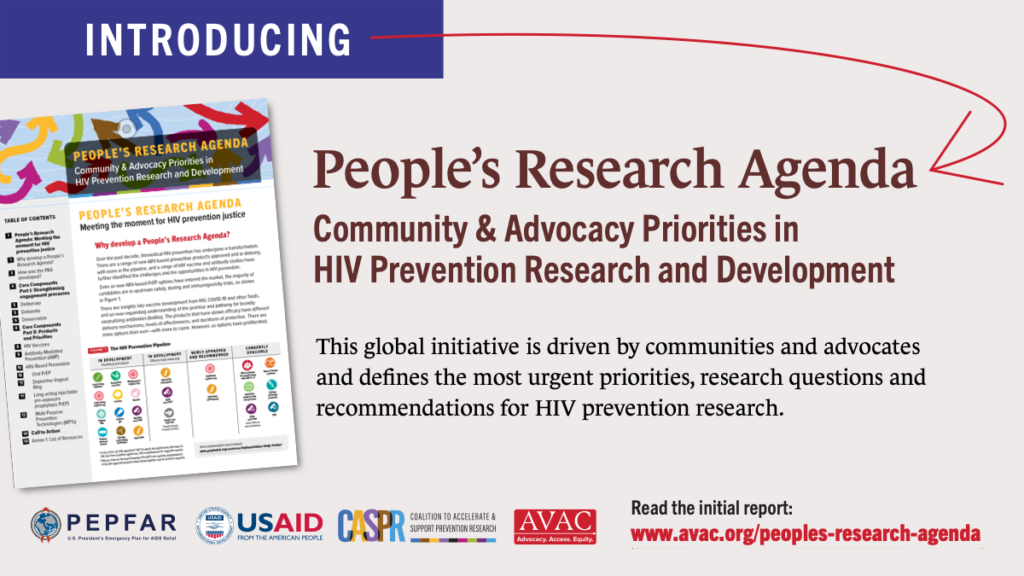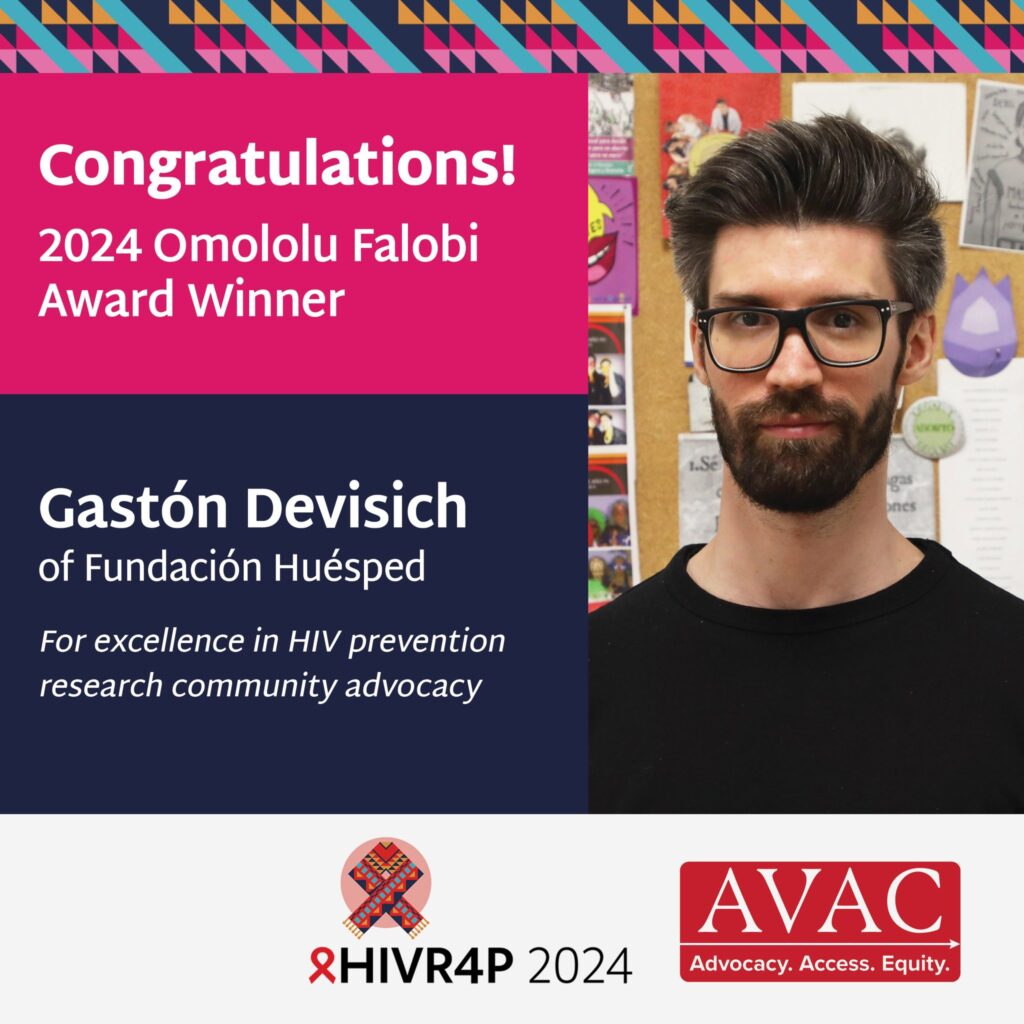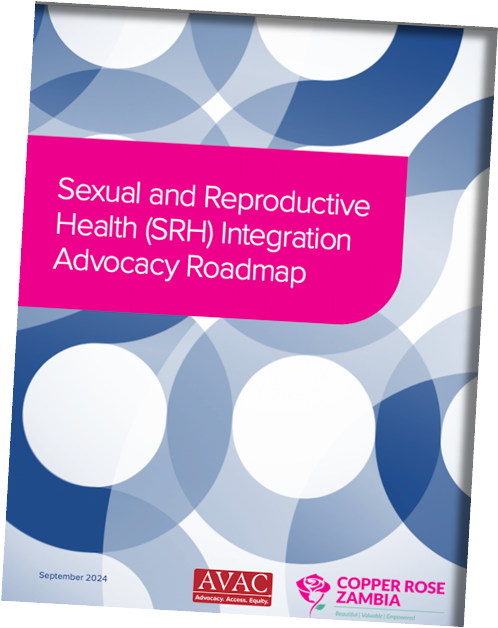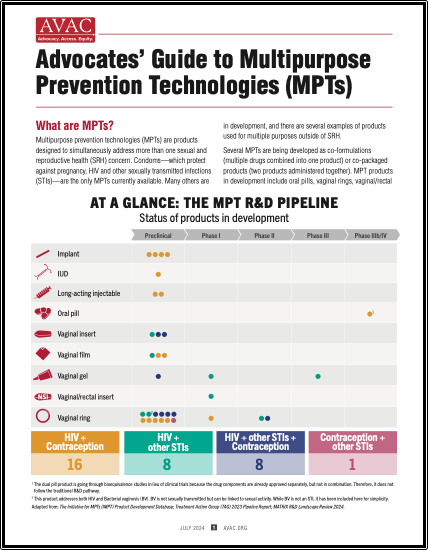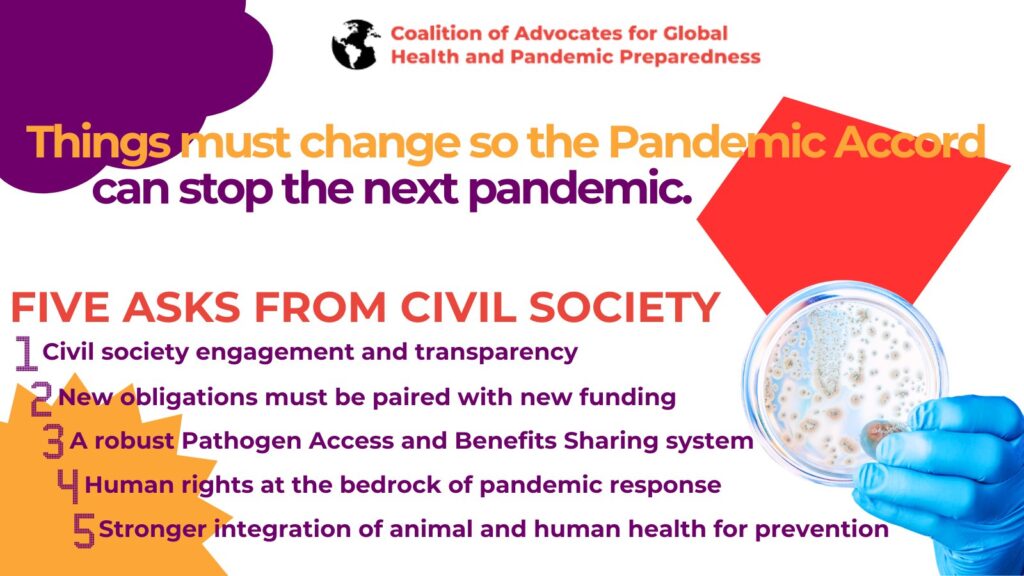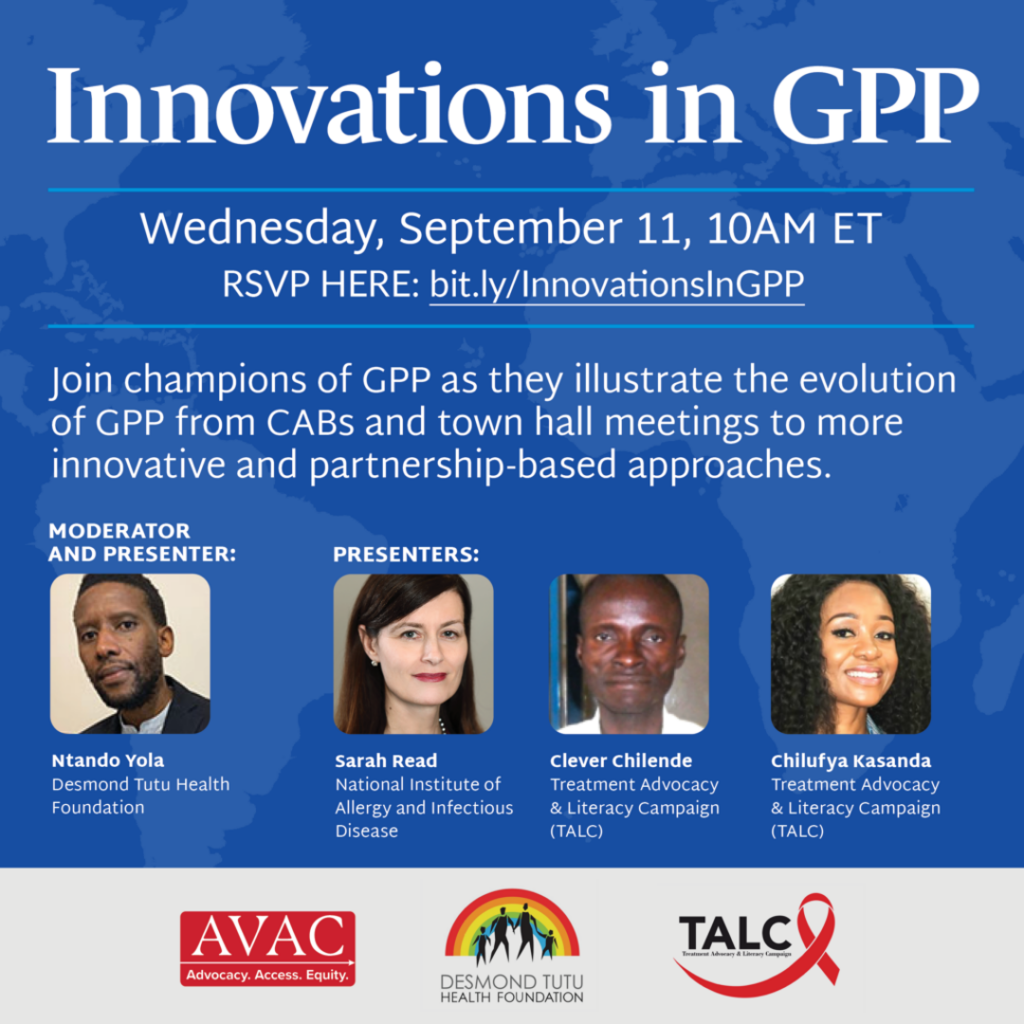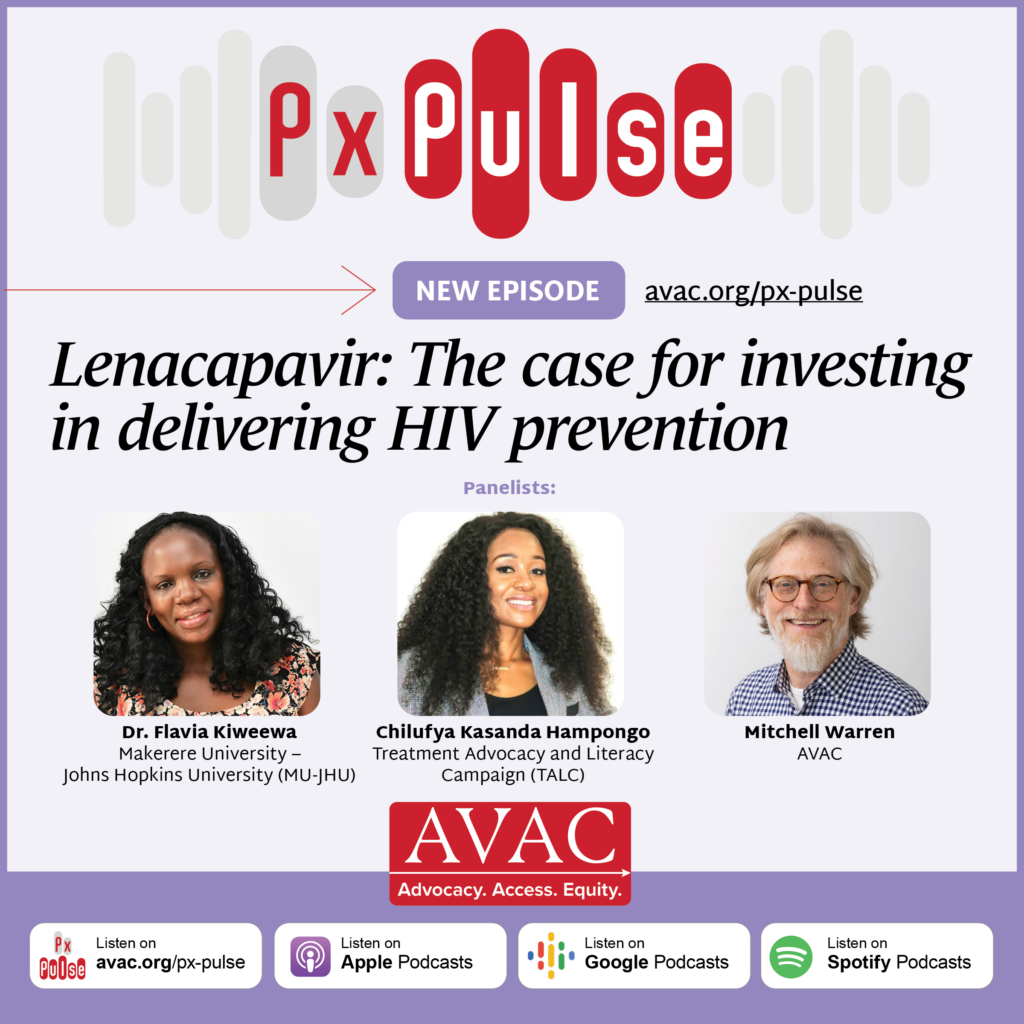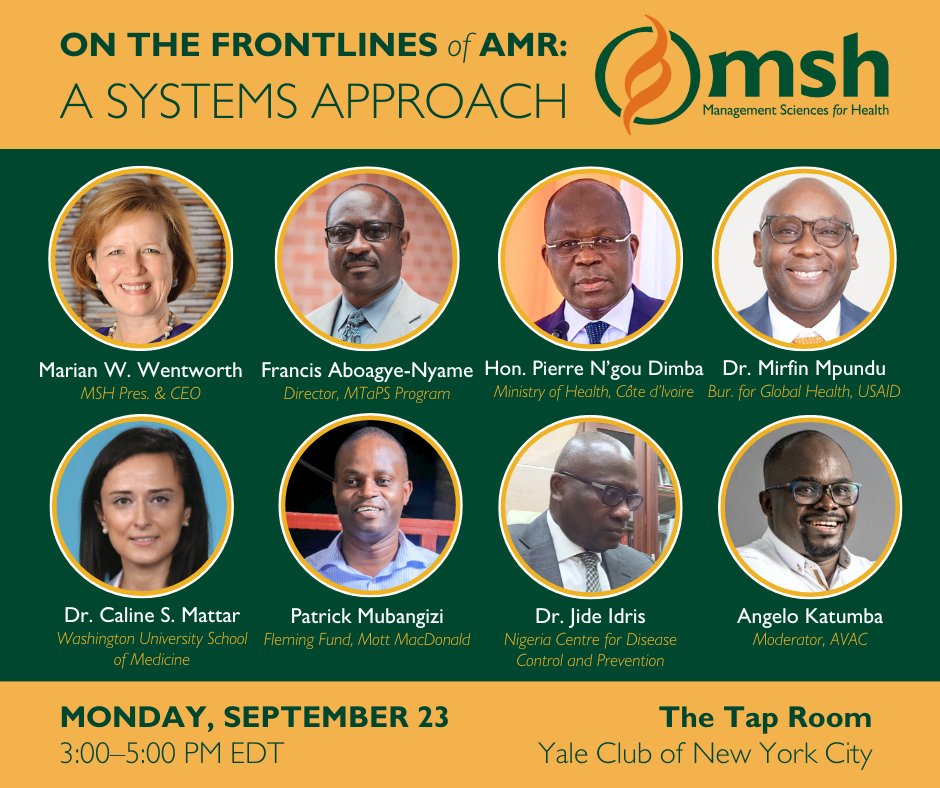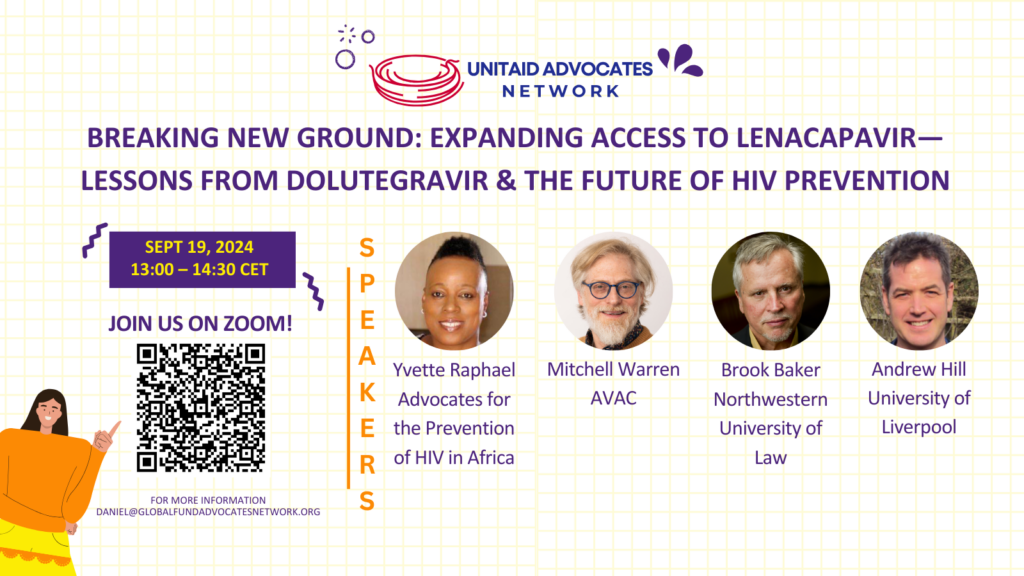We are looking ahead to the biennial HIV Research for Prevention 2024 conference in Lima, Peru next week, 6-10 October. HIVR4P is a space where biomedical HIV prevention research, policy and programs takes center stage. Whether you’ll be in Lima or are following from afar, AVAC will keep you connected!
Read on for information on AVAC sessions, a sortable roadmap, the Advocates’ Corner (open all week) and more!
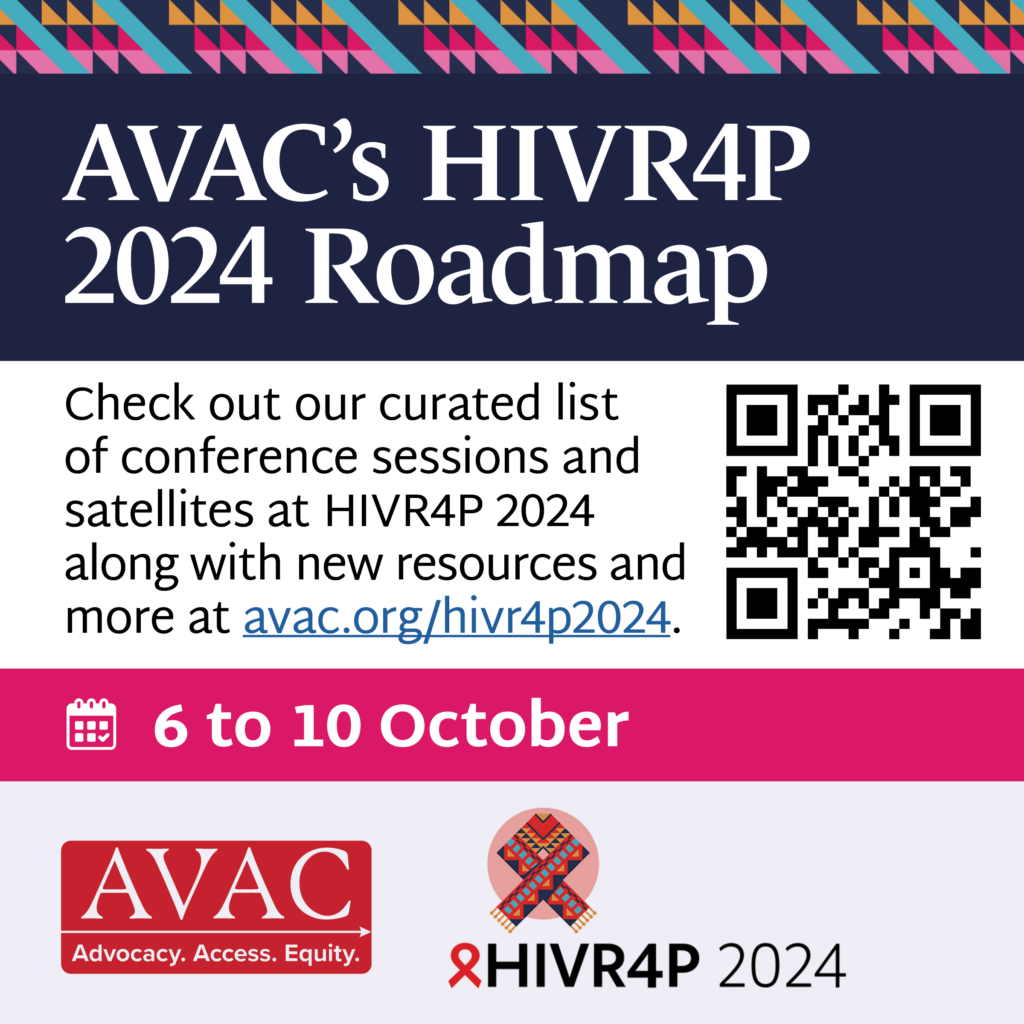
Resources
- Use AVAC’s Prevention Roadmap of conference sessions and satellites to find what interests you the most. You can download it as a sortable spreadsheet or PDF.
- Advocates’ Corner: If you plan to be in Lima, be sure to join us and our CASPR partners at the Advocates’ Corner to take the conversations and themes deeper. The Advocates’ Corner will be open throughout the conference hosting a program of activities along with materials displays and opportunities for informal networking. Be sure to check the events page for updates on programming.
- AVAC’s Coverage: From the latest news on injectable lenacapavir, to updates on the development of next generation prevention options, to the complex work of implementing the tools that exist today and all the advocacy needed to get it all done, our email dispatches to the Advocates’ Network keep you informed. Follow events in real time on Twitter at #HIVR4P2024 and Instagram.
- People’s Research Agenda: During HIVR4P, we’ll be releasing the new People’s Research Agenda, a global initiative driven by communities and advocates to define the most urgent priorities, research questions and recommendations for HIV prevention research. We hope it serves as a guide to what is – and should be – discussed at HIVR4P and beyond.
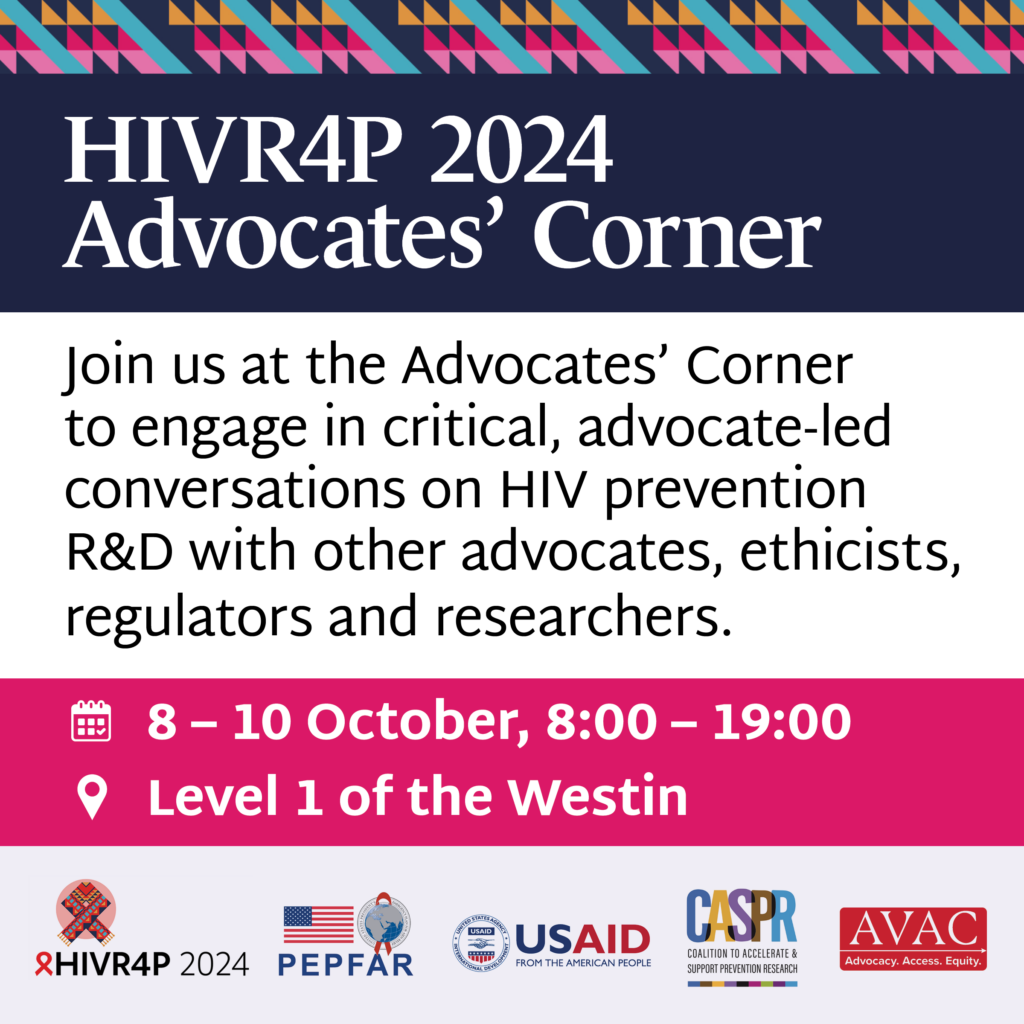
Satellites and Sessions Featuring AVAC and Partners
Sunday, 6 October
- Satellite: Creating a Menu of Options: Early R&D of HIV prevention products for women, the MATRIX way, 08:30 – 10:00
- Satellite: The Continued Relevance of HIV Vaccines in the Age of Long-Acting Antiretrovirals: Insights from India and Sub-Saharan Africa, 10:30 – 12:00
- Satellite: Enhancing service providers’ engagement in PrEP delivery, uptake, and retention in Latin America & the Caribbean, 10:30 – 11:30
- Satellite: The brightest under 30: Celebrating youth voices and promoting meaningful youth engagement in HIV prevention research, 10:30 – 12:00
- Satellite: Catalyzing Progress in the Inclusion of Pregnant and Lactating People in HIV Prevention Research, 12:30 – 14:00
- Satellite: Delivering on the promise: Defining optimal implementation strategies and service delivery packages for the Dual Prevention Pill,14:30 – 16:00
- Satellite: What’s Really Going to Work in the Lives of AGYW? Innovations in Acceptability and Mobile Health Support Interventions for HIV Prevention, 12:30 – 14:00
- Satellite: Understanding the role and power of advocates and researchers in advancing Discovery Medicine Vaccine Trials (DMVTs) and the development of Broadly Neutralizing Antibodies (bnAbs) for HIV Prevention, 16:30 – 17:30
Monday, 7 October
- Satellite: Leveraging SBR to Engage and Empower communities in HIV Prevention Research, 09:00 – 10:00
- Satellite: Manifest Choice: Enabling a future free of HIV, 10:30 – 11:30
- Satellite: Advancing Good Participatory Practices (GPP) in Research: Enhancing Community Engagement for Impact, 12:30 – 13:30
Tuesday, 8 October
- Oral abstract: The big picture: Global trends in HIV prevention, 11:00 – 12:30
AVAC’s Catherine Verde Hashim will present the abstract, Identifying global typologies of HIV PrEP implementation: an analysis of global data using PrEP-to-need ratios and PrEP distribution volumes. - Oral abstract: Novel antiretrovirals and formulations for prevention, 11:00 – 12:40
Jim Pickett will co-moderate this session which will discuss new data on islatravir and lenacapavir for PrEP, U=U and more.
- Symposium: Quo vadis: Future design and conduct of vaccine and bNAb clinical trials, 13:30 – 15:00
AVAC’s Grace Kumwenda and colleagues will discuss the viability and practicality of bNAbs as HIV prevention tools.
- Symposium: Prevention product profiles for future options, including long-acting PrEP formulations and products, 13:30 – 15:00
Moderated by Mitchell Warren, this session will discuss the issues of choice and combination products in HIV prevention, and will look at Target Product Profiles for various technologies, especially long-acting PrEP options.
Wednesday, 9 October
- Symposium: Reducing burdens and barriers to expand the use of HIV prevention options, 13:30 – 15:00
This session will explore the promise, potential and risks of using remote tools, such as telemedicine, virtual tools, apps and self-testing and the impact of other tools used to expand access and uptake of HIV prevention modalities. It will also review approaches to overcome misinformation and mistrust.
Thursday, 10 October
- Oral abstract: Policy and legal barriers to HIV services, 08:30 – 10:00
Brian Minalga of Fred Hutchinson Cancer Center will present, The transgender scorecard: ensuring representation in HIV prevention research.
- Oral abstract: Driving PrEP implementation through community engaged science, 13:00 – 14:30
Esther Nakkazi will present, Using local languages for accurate science reporting in Media Science Cafés in East and Southern Africa.
Find these resources, conference highlights and more at AVAC’s dedicated HIVR4P 2024 page. And watch this space for new opportunities to come together and shape what happens next.
